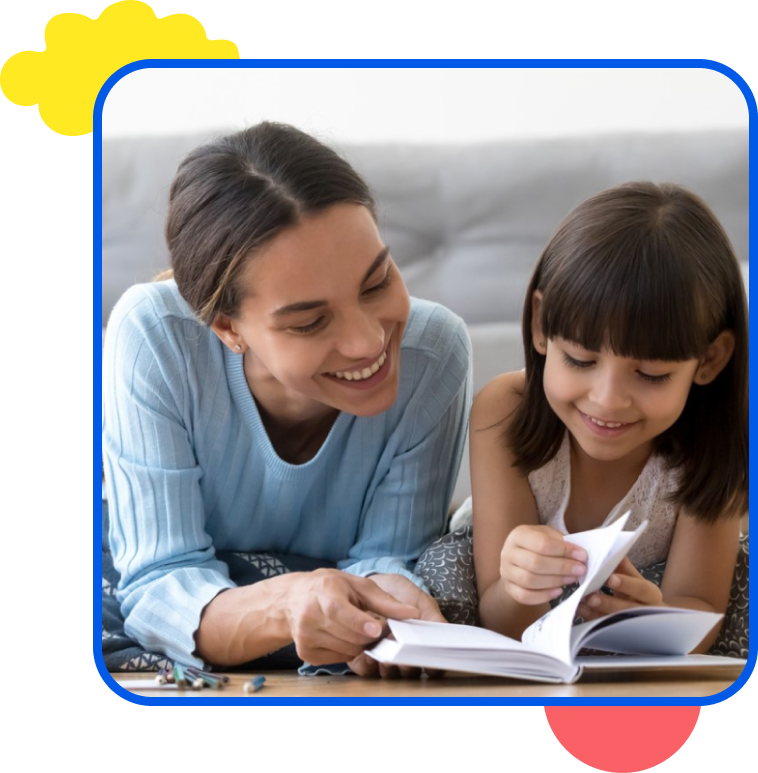The Best Ways to Learn Arabic for Kids



It’s never too early to introduce a new language to your children, but the task can be incredibly daunting for you and dry for them. How do you keep them engaged while keeping you sane? Where do you start? Luckily there are some tricks that will help them learn Arabic.
Starting Out
The best time to learn a new language is young, right around the time they’re learning their primary language. Children aged 2-15 are like sponges, and the younger they begin, the more retention and fluency they’ll have. Kids learn languages more efficiently than adults for a number of reasons:
- They aren’t scared of failure or embarrassment. For some reason, as we grow, we become more apprehensive about trying new things for fear we may look foolish while getting the hang of it. Kids have no such inhibitions and happen to enjoy looking silly.
- Their lessons are tailored in a more fun and engaging way than the adult curriculum. It’s likely we’d learn almost just as well if we got to sing songs and play immersive games rather than conjugating verbs on blackboards for hours.
- Their brains are creating tons of new neural pathways with lots of elasticity, whereas our pathways are set more rigidly within the confines of the language we’ve become so accustomed to speaking. Their magical stretchy brains allow for adaptation to new grammatical rules, accents, and physiological habits since the pathways aren’t solidifying in any one direction yet.
The underlying trick to get it to stick is consistent routine and fun. Practice practice practice. Now, while absorption rates are higher in children, attention spans are lower. Kids are learning to multitask, but the function is on overdrive as they discover new interesting aspects of the world constantly for the first time. Distractions are abundant and overstimulating, causing them to lose focus on the task at hand. Researchers estimate that a child’s attention span maxes out at roughly 3x their age. For example:
And so on. This means one must curate a curriculum that breaks learning the language into digestible and enticing chunks.
When starting out, try to prioritize teaching common language rather than slang, niche topics, or complex dialogue. Start with what you need most and work outwards. There will be tough moments but patience and praise is key. Remembering your mutual goals and acknowledging how far they’ve progressed will help keep everyone motivated and focused.
Learning Arabic
Being multilingual comes with many advantages in both the external world and the internal cognitive function of the brain. Not only will your child get more job opportunities and test better in school, but they’ll also make more connections with perspectives from around the world and increase their brain power. Being bilingual increases creativity, flexibility, multitasking, memory (holding off things like Alzheimer’s and Dementia), attention, problem-solving, and can become the stepping stone to an easier path in learning a third language.
They’ll enjoy traveling with ease, expanding literary and cultural knowledge, and will generally become better communicators and company. Who wouldn’t want these things for their children?
Most parents who want their children to learn Arabic are first-generation immigrants who want to infuse their culture into their hybrid home. Their children are likely learning English first, and it may feel like they don’t have ties to their roots. Ready to embrace their heritage but often busy trying to raise a family and keep up with work, they may seek out efficient and flexible methods to teach Arabic to their children. Sound like your family dynamic? Here’s where the tricks and tips come in.
Make Learning Arabic Easy for Kids
Kids are still kids at the end of the day, so they’ll only devote attention to something that’s made appealing and immersive to them. Try these tactics when learning Arabic for kids.
Make Songs
Making just about anything into music and rhyme is a surefire way to get it to stick in the brain. “Music activates both the left and right brain at the same time, and the activation of both hemispheres can maximize learning and improve memory”, claims a study done by Florida National University. This will be especially effective for children who adore music and nursery rhymes. The tempo allows for slower pronunciation, the rhymes create associations that trigger a memory response, and the whimsy of it all keeps them interested and focused.
Much like parentese helps babies develop their primary language and intonation, music does the same. The exaggerated vowels, repetition, and varying tempos/pitches keep the shortest of attention spans in babies & kids going. They remain interested in the unpredictability of what will come next (as opposed to the flatter lineation of speech). Repetition, association, and charm for the win.
Leverage Gamification
Kids just want to have fun! Making anything possible into a game, much like a song, will keep them captivated and challenged. Trick them into thinking they’re not learning. Fun language games can be “word of the day” traditions, Arabic role play, and finding cognates (cognates are common root words and meanings between the primary language and the one being learned in order to make associations with our already familiar neural pathways. Arabic-English cognate examples can be found here). Playing word games like Scrabble, Articulate, or crosswords can be a great way to develop that out-of-box thinking they need to step into their learned language.
Get Apps
On that same note, game apps like Words With Friends or language-centred learning apps like Duolingo can be the way to go. Kids love the screens for some reason. This may keep them engaged more than a newspaper crossword or live song – and that’s okay. They’re learning valuable skills while having fun.
Other apps like Memrise, Babbel, and Rosetta Stone, Little Pim, Gus On The Go, to name a few, may be the right format for your child since every kid learns differently. Some will use more visual appeal, while others are more auditory. Some are free, and others have a monthly fee. It’s just about exploring what’s right for your family.
Engage their Senses
Finding out how your child learns best is a great place to start when strategizing your focus exercises. It’s still useful, however, to immerse each of their senses sometimes, regardless of a primary learning style. Language curriculums should be auditory, visual (reading and written), and verbal. Watching movies in Arabic is a great way for your kids to connect body language & mannerisms with words & meaning while observing subtle mouth movements and speech styles. It’ll keep them engaged more than a workbook will as well.
Inserting Arabic stories into the bedtime routine or picking up chapter books with playful plots will prove to be yet another great way, just like with movies, that context clues can help create meaningful associations without having to pick up a dictionary every 2 minutes. The storyline will draw them in, helping their minds fill in the blanks of the words they don’t know. They’ll subconsciously pick up the patterns as words repeat in similar sentence subjects, further validating their imposed meaning with a more specific and accurate one. Don’t underestimate the ability to hone in on nuance, especially with kids, who are extremely receptive.
Immerse Them in the Culture
You’ve heard of eat, pray, love? Try eat, breathe, and sleep the language. The more your children are around fluent speakers, Arabic writing, and Arabic culture, the more they’ll subconsciously pick it up. People are wired to make connections with other humans as efficiently and effectively as possible, mimicking them to provide comfort and relatability. If possible, try travelling to an Arabic-speaking country and spending some time there with the kids. Or, if the older members of your household speak Arabic, speak it more often at home to your kids.
Get Them a Practice Pal
Finding an Arabic pen pal who can also have fluent verbal conversations with your child can be so helpful. Engaging in active conversation is different from formal written formats and will help add a natural native accent and linguistic style to their speech. Find someone who can hold them accountable for their practice, putting to use what they learned that day, so it’s more likely to stick. They’ll then become affluent in useful everyday phrases and questions.
Join a Holistic Program
Do these helpful strategies still sound like more than you, a parent with very limited time and resources, can take on every day? Try enrolling your child in a program that includes all of these fun and effective strategies, like LingoCircle. A holistic approach is going to be the most effective tactic.
The LingoCircle Program
LingoCircle is an online language learning program for kids aged 3-15 that creates a unique classroom experience with a proprietary curriculum built by certified language experts. Your child can learn arabic online with a handful of other kids and a skilled certified native linguistic teacher. They’ll sing songs, play games, learn letters & sounds, do activities, learn math, read books, etc. – all in Arabic. You’ll find yourself in a community of other parents and children wanting to socialize and practice the language together.
Other parents have nothing but great things to say about their LingoCircle experience. One says, “I have tried many language classes for kids, and this is the best! The curriculum is well thought through, the teachers are really engaged, and the classroom experience is unique. My 8-year-old loves it and has made so much progress in only one month. Highly recommend LingoCircle’s bilingual education program!”.
Another client reports, “I am so happy to have found this amazing program! My son enjoys his classes and is engaged and connected with the teachers and his peers. He has learned so much and is progressing so well. The teachers are attentive, energetic and caring”.
The LingoCircle curriculum is consistent with the Arabic Preschool and Elementary School immersion programs for early learners. The certified teachers are very qualified native speakers who are trained in early education. LingoCircle was founded by certified foreign language experts & childhood educators, so they maintain those standards within their curated programming. You’ll get progress reports regularly, so you can see that your child is thriving and committed to the lesson plans.
LingoCircle takes the load off you while providing your child with structure, a routine for learning and ties to their roots. Being bilingual is such an advantage in a world where being an immigrant can still come with many disadvantages. Instilling a second (or third – who’s counting?) language into your kids will open up many opportunities in life for them while enriching their minds and cultural understanding. They’ll appreciate it when they’re older, even if they rebel against it a bit now.
Language rebellion is a totally normal response to the introduction of a new language. Kids may hold onto their primary language in an assertion of their original identity and individualism while trying to fit in with classmates. This often fades as they come to enjoy the freedoms bilingualism brings. This is also the reason why LingoCircle’s program believes in learning with peers and friends sharing similar background and willingness to learn the language. This unique classroom experience triggers interest and engagement in kids that would most likely be more challenging otherwise.
Outside the classes, you can help them by encouraging both languages, highlighting the importance of communication in real-life situations, and remaining patient and open to compromise. This will allow them to feel more agency over their lives and decide on their own to make peace with this new change. Soon it will become another thing that makes them special and dynamic.
Conclusion
Do yourselves both a favor and enroll in LingoCircle now. Your children will thank you later. Qualified experts, friendly classmates, and a comprehensive program are waiting for your family to join in!


Simple Ways to Learn a Second Language at Home
Get resources and tips to help supplement your bilingual education journey at home.
By providing your email you are signing up to receive emails from Bilingual Bebe. Privacy Policy






